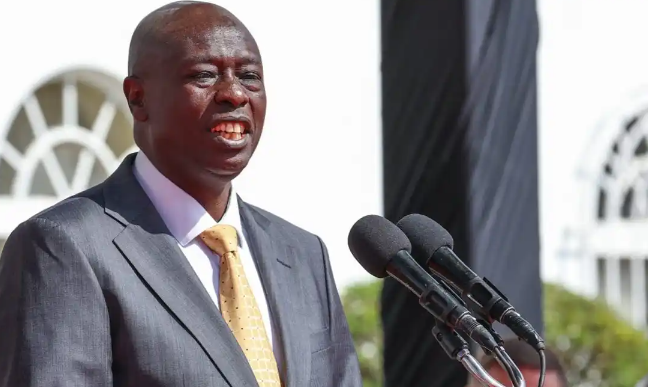Heated exchange over Deputy President Rigathi Gachagua’s recent travel arrangements, political commentator Alinur Mohammed has raised questions about the Deputy President’s financial sources and the availability of government resources.
Gachagua was reportedly compelled to pay for his flight to Mombasa on Kenya Airways, sparking debate about the state of government planes and the broader implications of his actions. “Where are the government planes?” Mohammed questioned.
“If Ruto is unable to purchase KQ aircraft, where is Riggy G receiving all this cash? Do you imply Riggy G is alone when it comes to carrying his suitcase?” Mohammed further noted the absence of any government representative at the airport to bid Gachagua farewell, a detail that has not gone unnoticed.
One observer remarked, “PR at its best. The DP has a bodyguard, a PA, and security guards who can help him carry the bag, but he asked them to take the photos and post instead.”
This comment suggests that Gachagua’s display of self-sufficiency was more about public relations than practicality, drawing parallels to President William Ruto’s previous tactics during his time with former President Uhuru Kenyatta.The incident has drawn mixed reactions, with some criticizing the perceived theatrics.
“Gachagua is playing the same script Ruto played with Uhuru. And we thank God for Benny Hinn offering prayers,” commented another observer. “There is no point in escorting an adult man just to board a plane to Mombasa. Those man-hours used to line up at the tarmac could be used to do better office work.”
This sentiment echoes a broader frustration with political posturing, particularly at a time when efficient use of resources is paramount.
The spectacle of a high-ranking official publicly handling his own luggage, despite having a full security detail, raises questions about the intentions behind such displays.
The controversy also touches on regional dynamics, with some voices from the Rift Valley expressing discontent.
“If Rift Valley has lost respect for the DP Hon Gachagua, let them at least respect the great people of Central Kenya, whose support earned Ruto the presidency,” stated a critic. “This one is for public consumption to keep people on the ground busy networking.”
The debate over Gachagua’s Mombasa trip highlights the ongoing tensions within Kenyan politics, where public perception and media narratives play crucial roles.
It underscores the challenges faced by leaders in balancing genuine actions with political strategy.
As the Deputy President continues his duties, the scrutiny of his every move reflects the heightened expectations and skepticism of the public.
Gachagua’s journey to Mombasa, ostensibly a routine part of his official duties, has become a flashpoint for broader discussions about transparency, resource management, and political theater in Kenya.
Whether this incident will have lasting implications or fade into the backdrop of the country’s dynamic political landscape remains to be seen.





















Add Comment